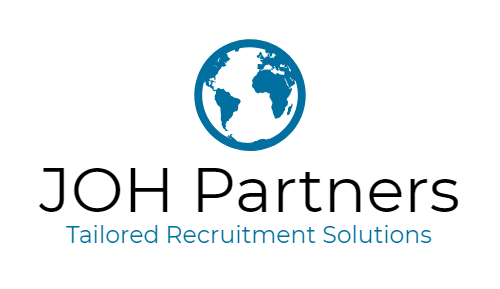In this section, we will explore key private equity interview questions and answers to help you prepare for your next meeting. These questions will cover technical skills, industry knowledge, and common topics discussed during private equity interviews. By mastering these questions, you can impress your interviewer and increase your chances of success.
Key Takeaways:
- Prepare for your private equity interview by familiarizing yourself with common interview questions.
- Master your technical skills, including financial modeling and analyzing financial statements.
- Demonstrate your knowledge and passion for the private equity industry during the interview.
- Practice answering fit questions to showcase your cultural fit and interpersonal skills.
- Use the STAR method to structure your answers and provide clear and concise responses.
- During the interview process for private equity roles, candidates may be asked about the transition to private equity and common questions about equity value.
Understanding Private Equity
Before diving into the specific interview questions, it’s crucial to have a solid understanding of private equity. This section will provide an overview of the private equity industry, including the different types of private equity firms, the role of private equity professionals, and the overall investment strategy. By grasping the fundamentals of private equity, you can showcase your knowledge and passion for the industry during your interview.
Private equity refers to the investment in private companies with the goal of generating substantial returns. Private equity firms, also known as PE firms, are organizations that raise funds from investors and use that capital to invest in private companies. These firms play a vital role in driving economic growth, job creation, and value creation.
There are various types of private equity firms, including:
- Buyout firms: These firms invest in mature companies, aiming to improve their performance and sell them at a higher price. They typically acquire a controlling stake in the companies they invest in.
- Growth equity firms: These firms invest in companies that have already demonstrated strong growth potential. They provide capital to support expansion, innovation, and market development.
- Venture capital firms: These firms invest in early-stage companies with high growth potential but higher risk. They provide funding, guidance, and expertise to help these startups succeed.
Private equity professionals are the individuals who work within PE firms and are responsible for identifying, analyzing, and executing investment opportunities. They play a crucial role in the success of private equity investments by conducting due diligence, financial modeling, and deal structuring.
Private equity investing involves the strategic acquisition of equity in private companies. It often requires a long-term perspective, as PE firms aim to enhance the value of their investments over time. This can involve implementing operational improvements, expanding the business, or pursuing strategic partnerships.
For individuals considering a career in private equity, it offers exciting opportunities to work with top-performing companies, drive growth, and generate significant returns. However, the private equity industry is highly competitive, and professionals need to possess strong analytical skills, business acumen, and the ability to thrive in a fast-paced environment.
In conclusion, understanding the fundamentals of private equity is essential for success in the industry. When preparing for your private equity interview, showcase your knowledge of different types of private equity firms, the role of private equity professionals, and the overall investment strategy. Highlight your passion for driving growth and creating value, as these are key attributes sought after by top private equity firms.
Technical Skills and Transaction Questions
Technical skills are fundamental in private equity interviews, as they demonstrate your ability to analyze investment opportunities and create value for a private equity firm. This section will cover specific technical interview questions that frequently arise during these interviews, enabling you to effectively showcase your expertise.
One common area of focus is financial modeling. Interviewers may ask you to construct a financial model to assess the potential return on investment for an acquisition of a company. Additionally, they may inquire about your knowledge of key financial statements, such as the balance sheet and income statement, and your understanding of important financial metrics like EBITDA.
Acase study is another common component of private equity interviews. Through a case study, interviewers evaluate your ability to analyze a potential investment opportunity and make insightful recommendations. These questions require you to assess the company’s financial health, debt and equity structure, growth prospects, and the potential value you can create through your investment.
Note: It is important to remember that each private equity firm may have its own specific approach to technical and transaction questions. Therefore, it is valuable to research and familiarize yourself with the specific investment strategy and portfolio of the firm you are interviewing with.
By demonstrating your proficiency in financial modeling, valuation, and analyzing financial statements, you will prove your ability to identify potential businesses to acquire, evaluate their potential, and create value through your investment. To further aid your understanding, consider the following table:
| Technical Skill | Description |
|---|---|
| Financial Modeling | Creating detailed financial models to analyze the financial performance of potential investments. |
| Valuation | Evaluating the worth of a company or asset, often by applying various valuation methods such as discounted cash flow (DCF) analysis. |
| Financial Statements Analysis | Understanding and interpreting financial statements, such as the balance sheet, income statement, and cash flow statement, to assess a company’s financial health and performance. |
| Case Study Analysis | Applying financial analysis and strategic thinking to evaluate a real or hypothetical business opportunity and make informed investment recommendations. |
Mastering these technical and transaction-related questions will enhance your chances of impressing your interviewer and securing a position in the private equity industry. Now, let’s move on to the next section, which explores common interview questions in the private equity sector.
Common Interview Questions
In addition to technical questions, private equity interviews often include fit questions that assess your cultural fit and interpersonal skills. Answering these questions effectively is essential in showcasing your suitability for a role in private equity. Here are some common fit questions that you may encounter:
Fit Questions
- Describe your experience working in a team and how it has prepared you for a role in private equity.
- Tell us about a time when you faced a challenging situation and how you dealt with it.
- Discuss your long-term career goals and how they align with your interest in private equity.
- Explain how you would contribute to the success of our portfolio companies.
- Describe your preferred management team qualities when evaluating potential investments.
These fit questions allow interviewers to gauge your interpersonal skills, teamwork ability, and alignment with the private equity industry. In addition to fit questions, you may also come across general questions that provide an opportunity to demonstrate your understanding of the private equity landscape. Here are some examples:
General Questions
- What excites you about working in the private equity industry?
- How do private equity firms differ from other types of financial institutions?
- What criteria do private equity firms look for when evaluating potential investments?
- How do private equity professionals add value to their portfolio companies?
- Can you explain the due diligence process involved in a private equity deal?
Preparing thoughtful answers to these fit and general questions will help you showcase your knowledge, passion, and suitability for a role in private equity. By demonstrating your abilities and aligning with the values and goals of the firm, you can increase your chances of success in your private equity interview.

| Question | Answer |
|---|---|
| Describe your experience working in a team and how it has prepared you for a role in private equity. | During my time at XYZ Company, I worked extensively in cross-functional teams to execute complex projects. This experience allowed me to develop strong collaboration and communication skills, which are vital in the private equity industry. By working closely with colleagues from diverse backgrounds, I learned how to leverage different perspectives to solve problems and drive value creation. |
| Tell us about a time when you faced a challenging situation and how you dealt with it. | When I was involved in the acquisition of ABC Company, we faced significant operational challenges during the integration process. The key issue was streamlining the supply chain to optimize efficiency and reduce costs. To resolve this, I led a cross-functional team and implemented a comprehensive supply chain restructuring plan, which resulted in a 20% reduction in lead time and cost savings of over $1 million annually. |
| Discuss your long-term career goals and how they align with your interest in private equity. | My long-term career goal is to become a private equity investor and contribute to the growth and success of portfolio companies. I am passionate about uncovering investment opportunities, conducting in-depth due diligence, and working closely with management teams to create value. By leveraging my analytical skills, industry knowledge, and network, I aim to drive sustainable growth and generate superior returns for investors. |
| Explain how you would contribute to the success of our portfolio companies. | I strongly believe in taking a proactive approach to add value to portfolio companies. By leveraging my operational expertise and strategic insights, I would identify growth opportunities, optimize operational processes, and enhance financial performance. Additionally, I would foster an environment of collaboration and continuous improvement, ensuring the alignment of management teams and stakeholders towards long-term value creation. |
| Describe your preferred management team qualities when evaluating potential investments. | When assessing potential investments, I prioritize management teams that demonstrate a track record of strong leadership, industry expertise, and a growth mindset. I look for teams that have a clear vision, strategic agility, and the ability to execute operational initiatives effectively. Additionally, I value teams that foster a culture of transparency, innovation, and collaboration, as these qualities are crucial for long-term success in the rapidly changing business landscape. |
Answering Interview Questions Effectively
Knowing the right way to answer interview questions is crucial for success. In this section, we will provide tips and strategies for answering interview questions effectively. We will discuss the STAR method, which can help you structure your answers, and provide sample answers for common private equity interview questions. By mastering the art of answering interview questions, you can confidently navigate your private equity interview and stand out from other candidates.
The STAR Method
The STAR method is a powerful framework that can help you organize your answers and provide concise yet comprehensive responses to interview questions. Here’s how it works:
1. Situation: Start by briefly describing the context or situation you were in.
2. Task: Explain the specific task or challenge you faced.
3. Action: Describe the actions you took to address the situation or complete the task.
4. Result: Share the outcome of your actions and highlight any achievements or lessons learned.
By following the STAR method, you can ensure that your answers are structured, focused, and impactful, leaving a lasting impression on the interviewer.
Sample Answers for Common Private Equity Interview Questions
To help you prepare for your private equity interview, we have crafted some sample answers for common interview questions:
- Question: Tell me about a time when you had to analyze a potential investment opportunity.
- Answer: In my previous role at ABC Private Equity, I was tasked with evaluating a potential acquisition target in the tech industry. I conducted extensive financial analysis, including a detailed review of the company’s financial statements and market projections. Through my analysis, I identified potential synergies and growth opportunities, further validating the investment potential.
- Question: How do you stay updated with the latest trends in the private equity industry?
- Answer: As a passionate professional in the private equity industry, I regularly read industry publications such as Private Equity News and follow reputable blogs and podcasts. I also attend industry conferences and networking events to connect with other professionals and learn from their experiences. This allows me to stay updated with the latest trends, emerging markets, and investment strategies.
These sample answers can serve as a guide to help you structure your own responses based on your experiences and knowledge.
Conclusion
In conclusion, preparing for a private equity interview requires a combination of technical skills, industry knowledge, and effective communication. By studying and practicing the interview questions covered in this article, you can increase your chances of acing your next private equity interview.
During the interview, make sure to showcase your passion for the industry and confidently answer questions. Demonstrate your ability to add value to a private equity firm by highlighting your experience in analyzing investment opportunities and creating value.
Remember, the key to success is an interview prep. By mastering the technical skills, understanding the private equity industry, and practicing your interview responses, you will be well-equipped to impress your interviewer and secure the private equity role you desire. Good luck!
FAQ
What are some common private equity interview questions?
Common private equity interview questions include technical questions about financial modeling, valuation, and analyzing financial statements. They also cover fit questions about your experience, career goals, and interpersonal skills.
How should I prepare for a private equity interview?
To prepare for a private equity interview, you should study technical skills such as financial modeling and valuation. You should also research the private equity industry, understand the role of private equity professionals, and practice answering common interview questions. Successful preparation for private equity interviews involves understanding the four types of questions typically asked, including both interview questions and answers that demonstrate expertise in private equity concepts.
What types of questions can I expect in a private equity interview?
In a private equity interview, you can expect a mix of technical questions and fit questions. Technical questions assess your knowledge of financial concepts and modeling skills, while fit questions evaluate your cultural fit and interpersonal abilities.
How can I answer interview questions effectively?
To answer interview questions effectively, you can use the STAR method (Situation, Task, Action, Result) to structure your answers. Additionally, practicing and preparing sample answers can help you confidently respond to interview questions.
What should I focus on during a private equity interview?
During a private equity interview, you should focus on showcasing your technical skills, demonstrating your industry knowledge, and highlighting how you can add value to a private equity firm. It’s important to be confident, enthusiastic, and knowledgeable about the industry.




